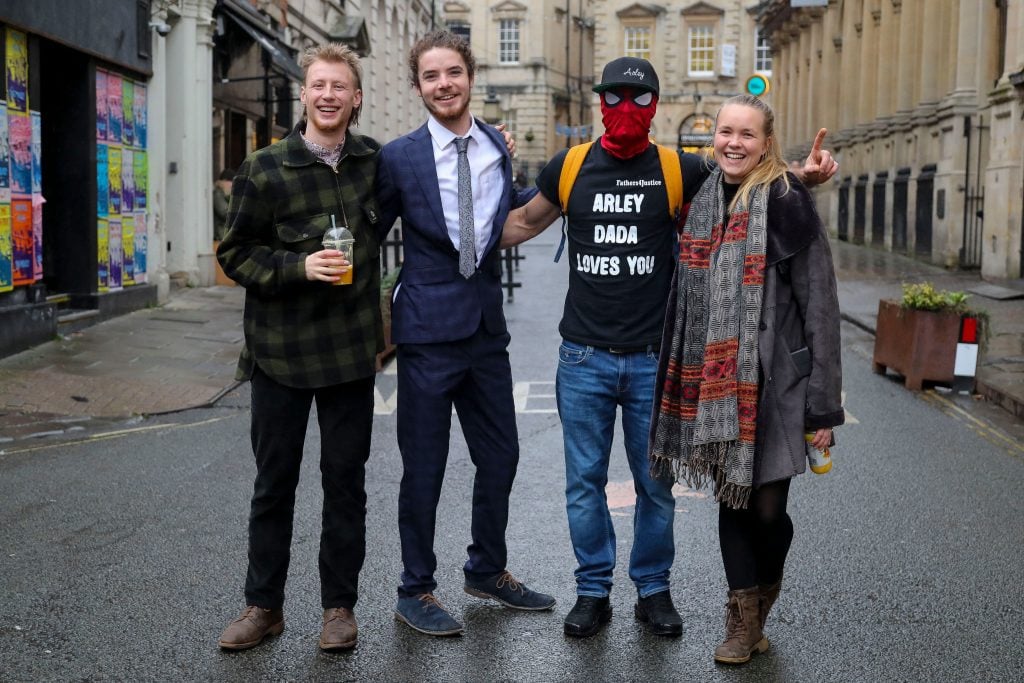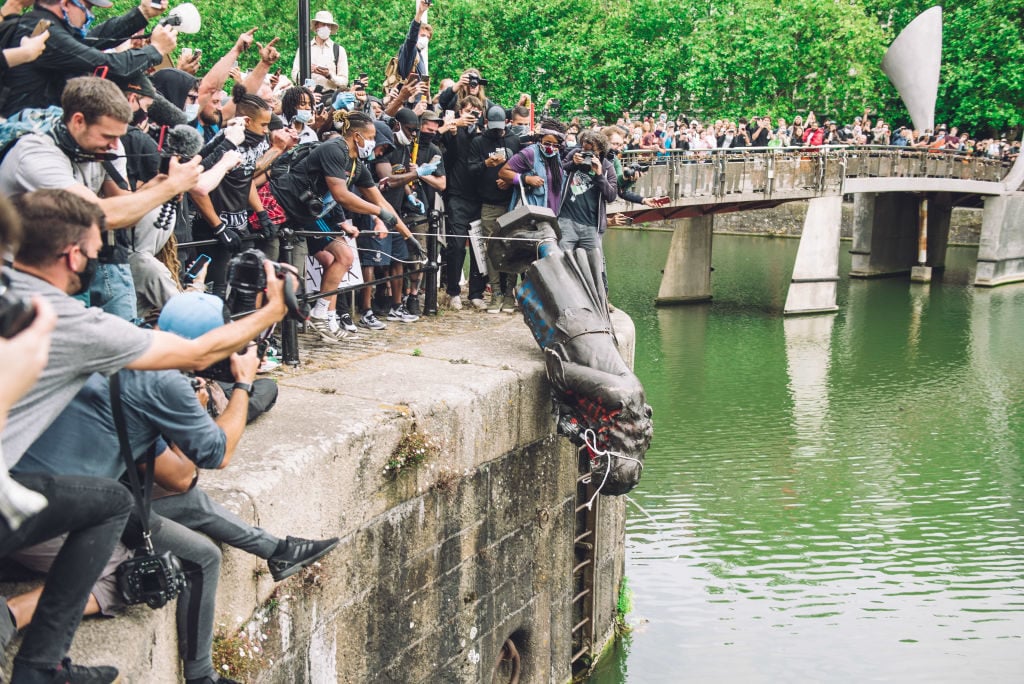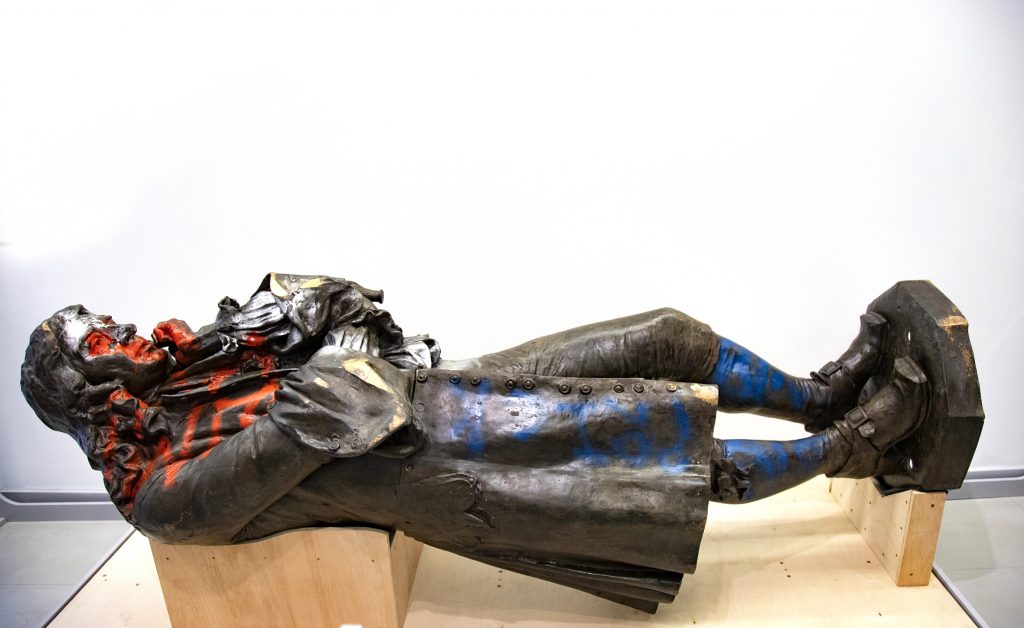Law & Politics
The ‘Colston Four,’ Who Toppled a Statue of a U.K. Slave Trader Last Year, Have Been Cleared of Criminal Charges
Banksy helped fundraise for the activists' legal defense.

Banksy helped fundraise for the activists' legal defense.

Sarah Cascone

In June 2020, as Black Lives Matter protests rocked the globe, four activists in Bristol, U.K., helped topple a statue of 17th-century slave trader Edward Colston. Now, after a two-week trial, a jury has found them not guilty of causing criminal damage.
Among those who had come to the defense of the Colston Four, as they’ve become known, was the street artist Banksy, who last month released a limited-edition t-shirt to raise funds to cover their legal costs.
Although a large crowd ripped the bronze statue from its pedestal and dumped it in Bristol harbor, Rhian Graham, 30; Jake Skuse, 33; Sage Willoughby, 22; and Milo Ponsford, 26, were the only protesters who faced criminal charges related to the June 7 incident. The act was heavily documented by CCTV footage and mobile phone videos.
The statue, erected in 1895, had attracted widespread criticism for its glorification of Colston. His philanthropy was largely funded by his shares in the Royal African Company, which enslaved some 84,000 people between 1672 and 1689.

The statue of Colston being pushed into the river Avon. Photo by Giulia Spadafora/NurPhoto via Getty Images.
Even before George Floyd’s murder sparked the global protests, there had been a push to publicly address at the site of the statue Colston’s role in the slave trade. But city officials couldn’t agree on the language for a proposed second sign that would join the existing plaque, which praises him as one of Bristol’s “most virtuous and wise sons.” After Floyd’s death, 11,000 people signed a petition for the statue’s removal, part of a global push to address public monuments to controversial figures.
At the trial, the prosecution did not deny Colston’s ties to slavery, but maintained that the statue’s unauthorized removal was nonetheless criminal behavior on the part of the Colston Four. The cost of damage to the statue, which lost its staff and coattail, was approximately £3,750 ($5,093), in addition to £350 ($474) in damages to city bridges, according to CNN.
The Bristol City Council retrieved the damaged artwork a few days later. It was displayed at a local museum in June 2021, shown on its side and still covered in demonstrators’ graffiti, in acknowledgement of its troubled past and uncertain future.

The statue of Edward Colston at M Shed. Photo courtesy of Bristol City Council.
Public support for the statue’s removal was a key element in the defense’s case. Lawyers argued the statue was offensive and needed to go, and that the Colston Four had not committed a criminal offense by taking the matter into their own hands.
“If you have a cancer like Colston festering in your city, you cut it out. Only once it’s gone that the body can heal,” Ponsford’s lawyer, Tom Wainwright, told the court, according to Sky News.
“Having a statue of someone of that caliber in the middle of the city, I believe, is an insult,” Willoughby said on the stand, reported the BBC. “Imagine having a Hitler statue in front of a Holocaust survivor—I believe they are similar.”
There were loud cheers from the packed public gallery after the jury returned its not guilty verdicts.
“It is shameful that Bristol City Council did not take down the statue of slaver Edward Colston that had caused such offense to people in Bristol and equally shameful that they then supported the prosecution of these defendants,” attorney Raj Chada, who represented Skuse, added. “The truth is that the defendants should never have been prosecuted.”